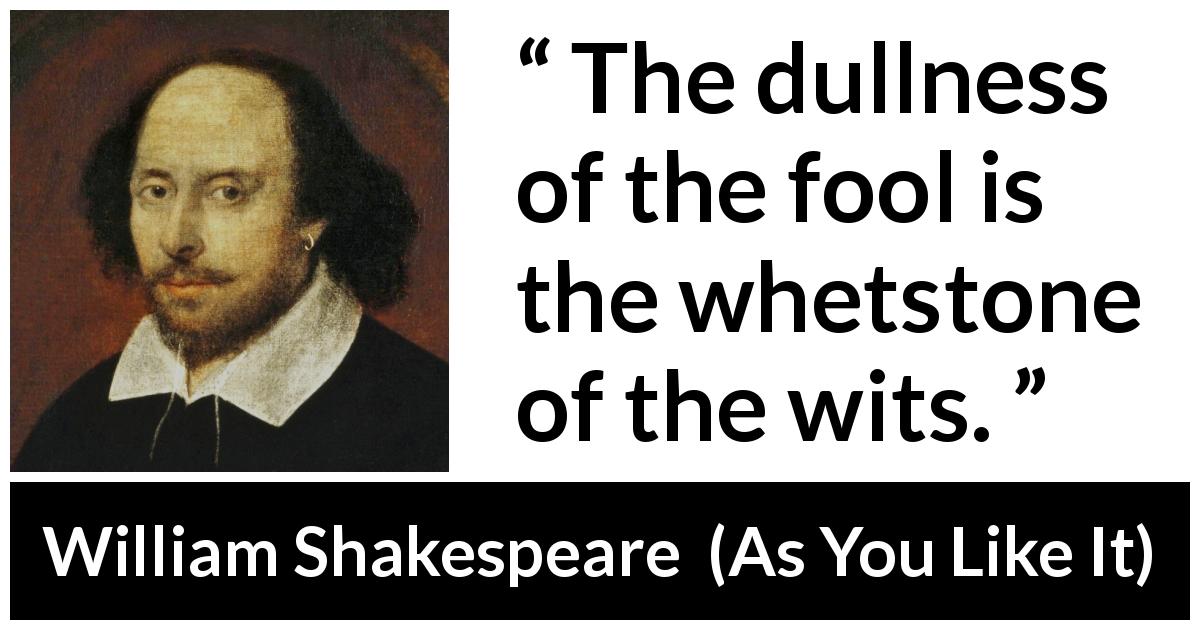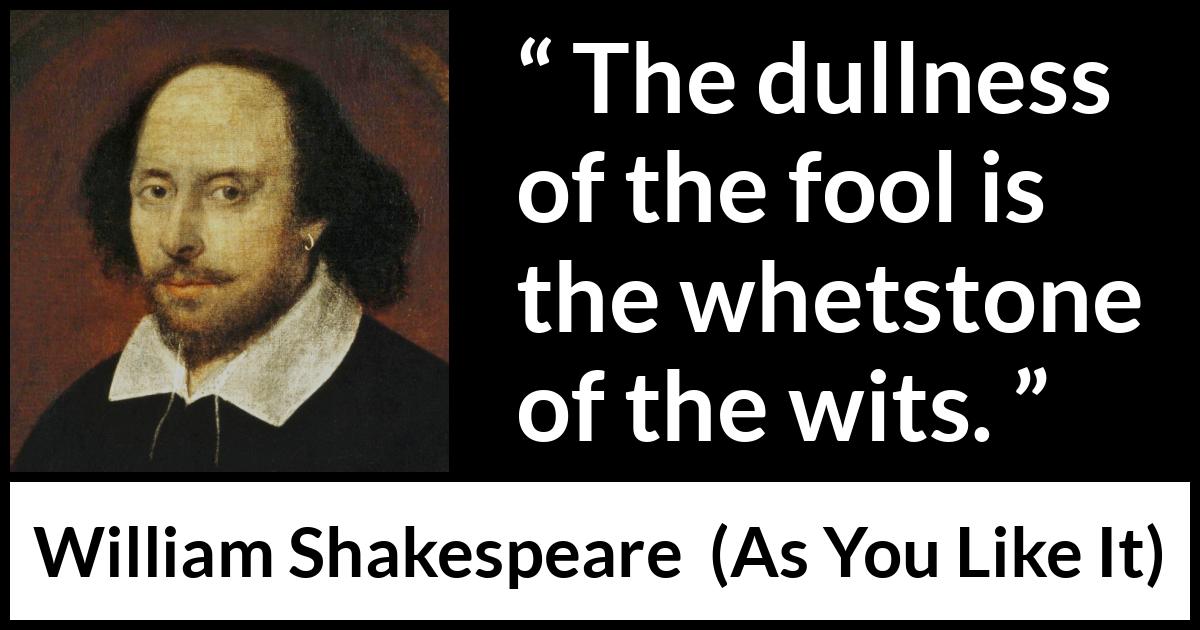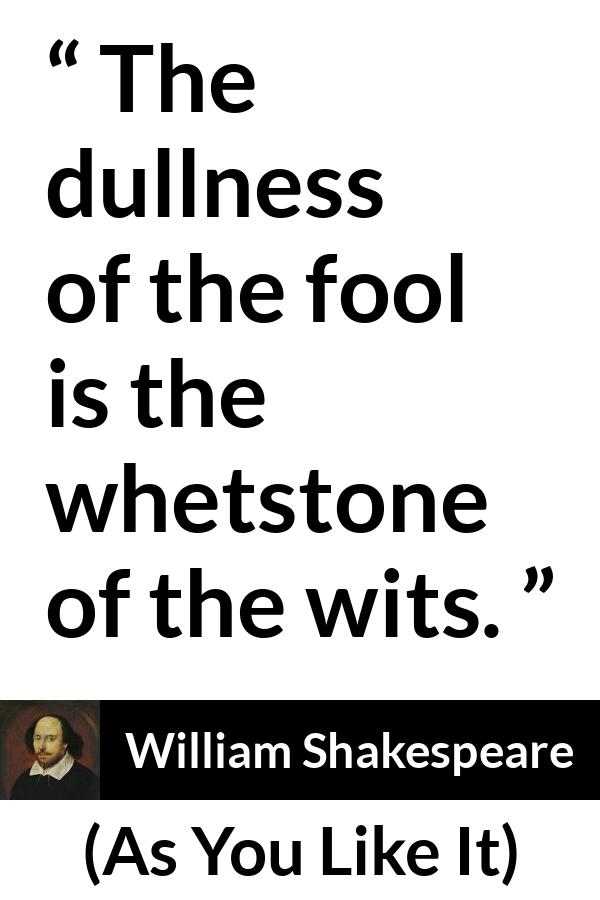“ The dullness of the fool is the whetstone of the wits. ”
William Shakespeare, As You Like It (1623). copy citation
| Author | William Shakespeare |
|---|---|
| Source | As You Like It |
| Topic | wisdom stupidity |
| Date | 1623 |
| Language | English |
| Reference | |
| Note | Written between 1598 and 1599 |
| Weblink | http://www.gutenberg.org/files/1523/1523-h/1523-h.htm |
Context
“No; when Nature hath made a fair creature, may she not by Fortune fall into the fire?—Though Nature hath given us wit to flout at Fortune, hath not Fortune sent in this fool to cut off the argument? [Enter TOUCHSTONE.] ROSALIND
Indeed, there is Fortune too hard for Nature, when Fortune makes Nature's natural the cutter-off of Nature's wit. CELIA Peradventure this is not Fortune's work neither, but Nature's, who perceiveth our natural wits too dull to reason of such goddesses, and hath sent this natural for our whetstone: for always the dullness of the fool is the whetstone of the wits.— How now, wit? Whither wander you?
TOUCHSTONE Mistress, you must come away to your father. CELIA Were you made the messenger? TOUCHSTONE No, by mine honour; but I was bid to come for you. ROSALIND Where learned you that oath, fool?” source
Indeed, there is Fortune too hard for Nature, when Fortune makes Nature's natural the cutter-off of Nature's wit. CELIA Peradventure this is not Fortune's work neither, but Nature's, who perceiveth our natural wits too dull to reason of such goddesses, and hath sent this natural for our whetstone: for always the dullness of the fool is the whetstone of the wits.— How now, wit? Whither wander you?
TOUCHSTONE Mistress, you must come away to your father. CELIA Were you made the messenger? TOUCHSTONE No, by mine honour; but I was bid to come for you. ROSALIND Where learned you that oath, fool?” source





















